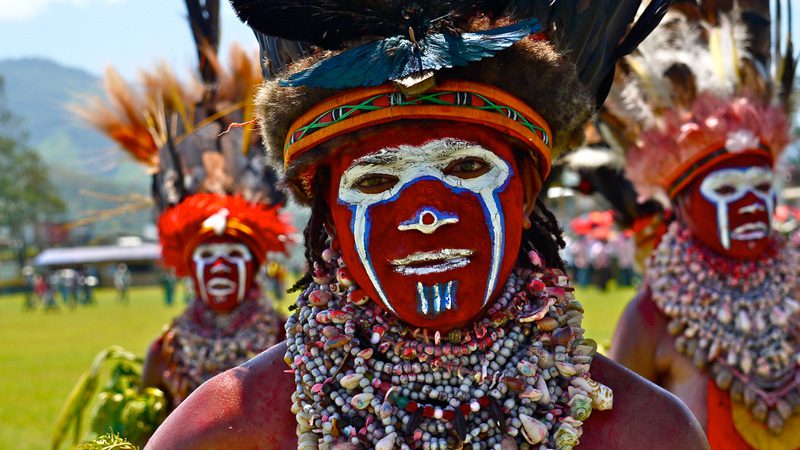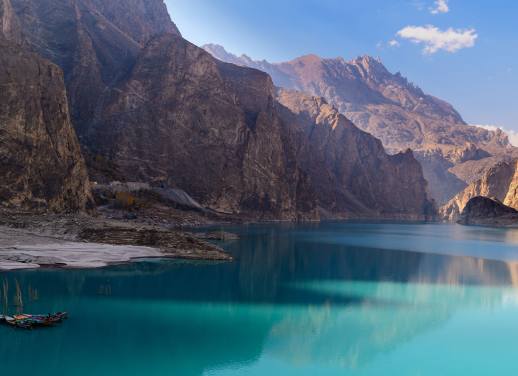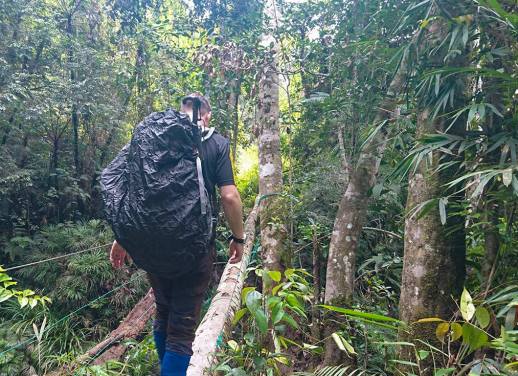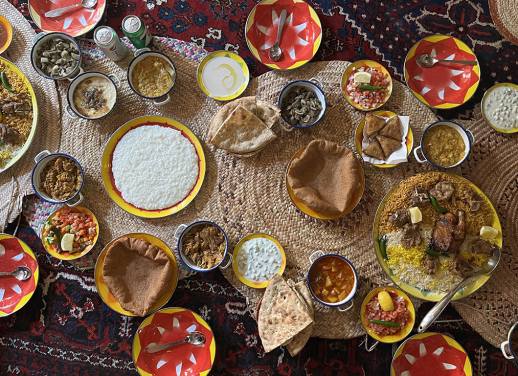When we sat down this year to plan our brand new expedition trips, we knew we wanted Papua New Guinea (PNG) in there somewhere. It’s a country close to our home base (Australia) but a million miles away from what people have come to expect from small group travel.
A famously crabby geography is largely to thank for PNG’s anonymity. Rivers, valleys, gorges, mountains, volcanoes, lagoons and inlets carve up the country like its nobody’s business. Infrastructure is limited and in many of the highland valleys, tribal life still holds sway. It’s an environment where literally hundreds of ethnicities and tribal groups (each with their own dialects, histories and traditions) have been able to evolve in relative isolation. And this year, on one very special departure, you can explore those traditions for yourself.
We sat down with Papua New Guinea expert Alan Manning, the man who built this very special expedition trip, to ask him a few questions about what travellers can expect in PNG this year.
How did the concept for this trip first come about?
Rabaul is where I hail from and it’s the “home base” of our operations here in Papua New Guinea. We’ve been dreaming about a trip featuring the Mask Festival in Rabaul for some time. This year we’re finally making it happen.
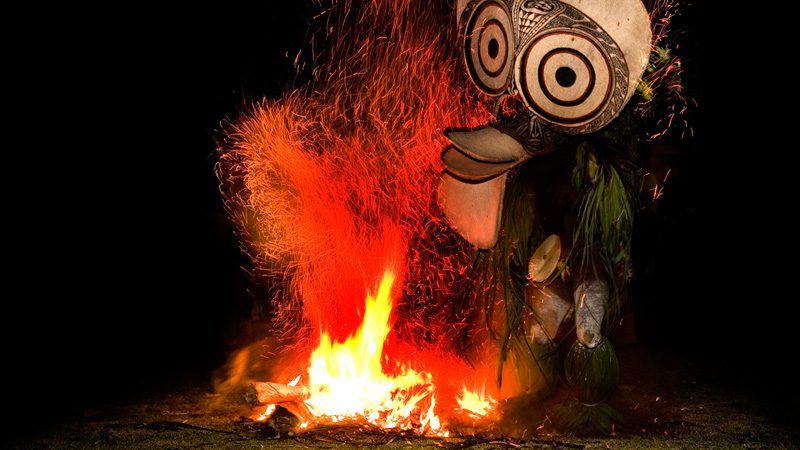
Men leap through the flames at the Baining Firedance. Image Taro Taylor, Flickr
What makes the experience unique for travellers?
It’s not hyperbole to say that nowhere in the world can you see anything quite like the Baining Firedance. Men in masks and body paint (and not much else) run into flames six or seven feet high and dance through the fire without being burnt. It’s an amazing spectacle and something that is unique to our region of the world. Travellers aren’t going to believe their eyes.
Many people just think of the Kokoda Track when they think of PNG – what else does the country have to offer?
When it comes to travel, PNG is truly the last frontier. It’s raw, has amazing flora and fauna and is home to over 400 different subcultures, each with their own dialects, dances and traditions. Our cultural shows and Sing Sings have been drawing travellers from all around the world – they’re some of the rawest and most authentic tribal festivals modern travellers can see.
On the coast we’ve got some world class fishing, with species like large Black Bass, Spotted Tail bass and Barramundi all pretty common just off shore. Surfing unchartered and uncrowded waves is another experience which we can guarantee – with surf lodges offering up to 60 NM of waves exclusively to 12 – 20 surfers at a time. If your passion lies beneath the water, we’ve also got some truly spectacular dive sites, including wreck dives less than 10 meters deep (great for beginners).
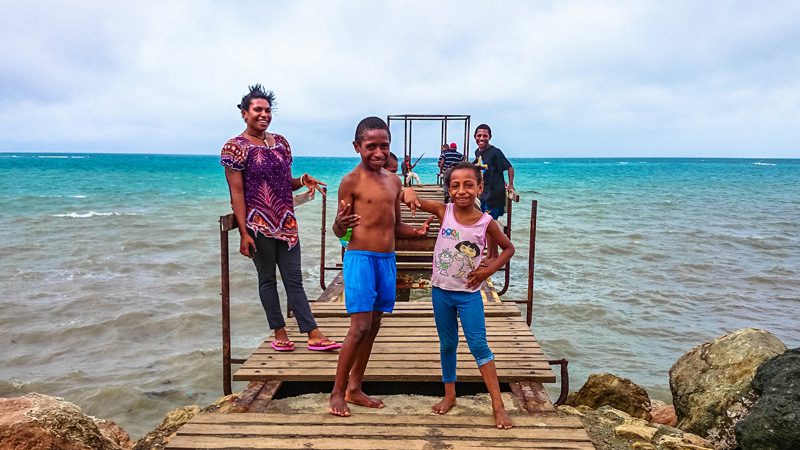
A few friendly locals. Image Hadi Zaher, Flickr
This trip takes in a few local festivals – can you talk a bit about what makes them so special?
The Baining Firedance is one of the most breathtaking things I’ve ever seen, and I’ve yet to meet a traveller who disagrees. High energy beats coupled with the drums and chants really get the heart thumping, and when you realize these men are dancing in a fire which radiates a heat you can feel from 20 – 30 m away…it’s mind-blowing.
What kind of on-the-ground experience can travellers expect on this trip? (What will they be eating, where will they be sleeping, etc…)
This trip is designed to get you into the guts of rural PNG. Visitors can see the re-enacted canoe landing that kicks off the famous Kinavai Ceremony, the Rabaul Mask Festival and of course the Baining Fire Dance. We’ll also be working our way through some of the smaller villages on Matupit Island, checking out war relics in Kokopo Town and cruising around the Duke of York Islands.
What kind of traveller would this trip suit? Would you recommend it to first-timers to PNG?
Obviously this trip won’t be for everybody. That’s why we’re only running one select departure. But for those travellers who want to see something a little different, something raw and far away from a typical small group trip, this one will deliver in spades. Any budding anthropologists and culture vultures will have plenty to soak up (we’ve got over 400 distinct ethnic groups), divers and surfers will enjoy some truly world-class conditions and history buffs can brush up on a really interesting pocket of Oceania. Just be aware, this is adventure in its rawest form, so travellers shouldn’t expect luxury 5-star accommodation (we can offer 6-star nature instead).
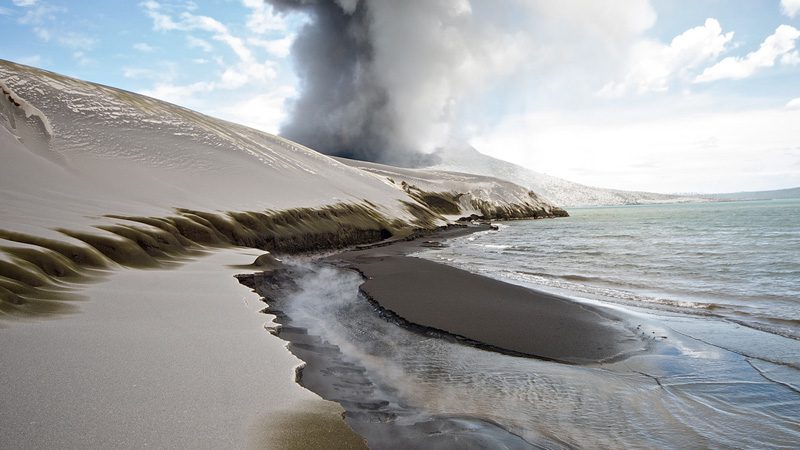
Volcanic ash beaches near Rabaul. Image Taro Taylor, Flickr
On a scale of 1-10, how far off the beaten track is this trip?
We do stay at a couple of hotels with a pool and good meals, but the rest of the time is definitely a village lifestyle. Our day-to-day adventures will take us through some of Papua New Guinea’s wildest regions.
Are there any unexpected surprises travellers might encounter along the way?
They wouldn’t be a surprise if we told, now would they? We’re not called the land of the unexpected for nothing…
Ready to go exploring? Our Papua New Guinea Expedition is filling up fast.
Feature image c/o Rita Willaert, Flickr

